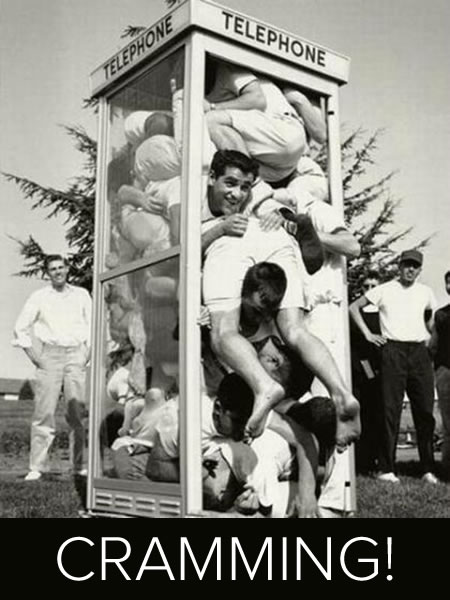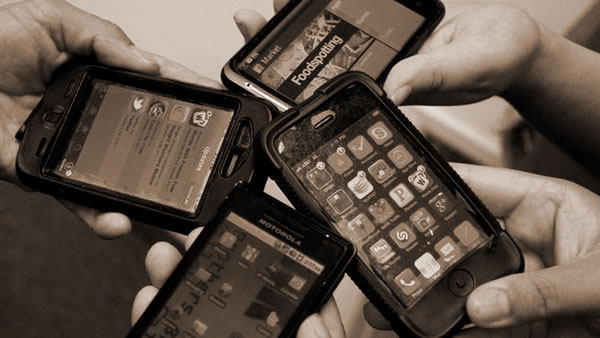What’s cramming?

Cramming is the very apt name for a form of fraud where third parties unauthorized charges are added to your wireline, wireless, or bundled services telecom bills. Crammers rely on the combination of telecom bills being so confusing and making sure that the charges they add — often with vague, yet plausible-sounding names — are small enough not to raise suspicion. The FCC (Federal Communications Commission) says that cramming affects tens of millions of household in the U.S., and a Senate Commerce Committee investigation released a report in 2011 that said that cramming costs U.S. consumers $2 billion a year.
The FCC’s web page on cramming provides examples of what these unapproved charges can look like:
- Charges for services that are explained on your telephone bill in general terms such as “service fee,” “service charge,” “other fees,” “voicemail,” “mail server,” “calling plan” and “membership.”
- Charges that are added to your telephone bill every month without a clear explanation of the services provided – such as a “monthly fee” or “minimum monthly usage fee.”
- Charges for specific services or products you may not have authorized, like ringtones, cell phone wallpaper, or “premium” text messages about sports scores, celebrity gossip, flirting tips or daily horoscopes.
Cramming came about when telecom carriers saw an opportunity to increase their profits by acting like credit cards. They now allow third parties to charge customers through their telecom bills, treating their phone numbers like credit card numbers, and they collect a small percentage of the transaction. While convenient for customers and lucrative for carriers, this introduces a number of opportunities for fraud. While credit card numbers are treated as confidential, phone numbers are published openly; some crammers have made money simply by charging phone numbers obtained from directories while others incentivize people into divulging their phone numbers through fake contests and offers.
The key to protecting yourself from cramming is to pay close attention to your phone bill. Review it as closely as you’d review your credit card statement, and ask yourself these questions:
- Are there any names of companies on your phone bill that you don’t recognize?
- Does your bill include charges that can’t be accounted for — calls you didn’t make or services you didn’t sign up for?
- Are there small “mystery charges”, typically less than $10, and often as little as $1, with non-descriptive names that don’t seem to be tied to any service that you’ve signed up for?
- Are the rates and line items that appear on your bill consistent with the rates and line items that you were quoted?
If you’re thinking about signing up for a service that charges you through your phone bill, be sure to read the fine print. If you’re thinking of signing up for a service that texts you things like “love tips”, “fun facts” and “celebrity gossip”, think again: last year, a crammer by the name of Andrew Bachman was found to be cramming users at $9.99 a month for these services without their approval.
You should also keep a record of all services that you subscribe to that charge via your phone bill.
A settlement for Sprint and Verizon customers

The FCC, along with the CFPB (Consumer Financial Protection Bureau) and state attorneys general have been pursuing cramming activity in telecom bills, charging the third parties involved in cramming and issuing over $350 million in penalties to the “Big Four” carriers, more than $250 million of which was returned to affected customers.
On May 12, 2015, it was announced that…
- Sprint Corporation will pay $68 million and
- Verizon will pay $90 million
…to settle investigations that showed that they were party to third parties billing customers hundreds of millions of dollars in unauthorized third-party premium text-messaging services, a.k.a. cramming. $120 million of the sum of their payments will be repaid to customers, and you may be due for some of that payback! If you’ve been a customer of Sprint, Sprint’s prepaid subsidiaries (Virgin Mobile, Boost Mobile, Sprint prepaid, and Assurance Wireless) or Verizon in the past five years, you may be eligible:
- If you might be an eligible Sprint (or subsidiary) customer, visit their site at sprintrefundpsms.com or call the Sprint settlement hotline 1- 877-389-8787. Sprint customers should use the claims form in the FAQ section, and subscribers to Sprint’s prepaid subsidiaries (once again, Virgin Mobile, Boost Mobile, Sprint prepaid, and Assurance Wireless) can file for a one-time $7 refund.
- If you might be an eligible Verizon customer, visit their site at CFPBSettlementVerizon.com or call the Verizon settlement hotline at 1-888-726-7063.
